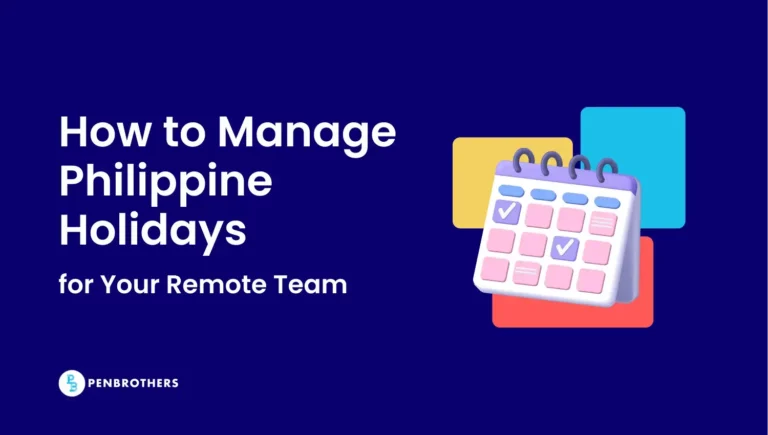When you’re part of a global team, every detail of your professional setup matters. Skills get you noticed, but compliance gets you hired. And one of the first steps to proving you’re remote-work ready in the Philippines is securing a valid government-issued ID, often starting with the Postal ID.
It may seem basic, but in practice, this ID can be the difference between landing a role with an international client or being stuck waiting for verification. This guide walks you through the essentials, but more importantly, shows how this ID can strengthen your credibility as a Filipino remote worker.
What is a Postal ID and Why It Still Matters
The Postal identification card remains one of the most accessible valid IDs in the Philippines. Unlike passports or UMIDs, almost anyone can apply for it, making it a practical first ID.
For remote professionals, it’s more than just identification. It’s proof that you’re officially recognized and ready to transact across borders.
- For global HR teams: It’s often the first checkmark when validating your identity.
- For payment platforms: This is accepted for account verification on GCash, PayPal, and Payoneer.
- For career readiness: It gets you past the basic screening so you can focus on showcasing your skills.
Without it, you risk delays in onboarding, salary transfers, and even losing opportunities to someone who’s compliance-ready.
PhilPost ID Requirements and Application Process (Step by Step)
Requirements:
- Accomplished application form
- Proof of identity (e.g., birth certificate, marriage certificate)
- Proof of address (barangay certificate, utility bill, or bank statement)
- Application fee: PHP 504.00 (VAT inclusive)
Steps:
- Prepare your documents.
- Visit the nearest post office or PhilPost ID capture station.
- Submit requirements, pay the fee, and get your photo and biometrics taken.
- Wait 2–3 weeks for delivery.
Remote work tip: Apply before you start job hunting or client pitching. Many global teams want you to prove identity fast. Waiting for your ID could mean losing a project or job offer.
Is Postal ID Accepted for Employment?
Yes. Employers in the Philippines and many global clients who hire Filipino talent accept PhilPost ID as a valid starting document.
But here’s what seasoned remote workers know:
- It’s often step one in the compliance journey. Clients and HR teams may ask for a secondary ID (PhilSys, UMID, Passport) as your role expands.
- For finance-related roles, or anything tied to security, expect additional checks.
Pro tip: Don’t stop at this ID. Treat it as your entry point into a compliance portfolio. Having multiple valid IDs makes you a smoother, more trustworthy hire.
Postal ID vs. Other Valid IDs: Which Should You Prioritize?
Remote workers often juggle multiple IDs, but knowing the priority order saves you stress:
- PhilPost ID: Fastest to get, works for onboarding and basic verification.
- PhilSys (National ID): More robust but rollout delays still occur.
- UMID: Best for employed professionals under SSS/GSIS.
- Passport: Mandatory for global travel and some international compliance checks.
Career pathway:
- Fresh remote worker → Start with PhilPost ID.
- Established full-time → Add PhilSys/UMID.
- Scaling globally → Secure a Passport.
Having this progression ensures you’re never blocked when clients ask for “just one more ID.”
Common Postal ID Problems and How to Solve Them
Remote professionals can’t afford unnecessary delays. Here’s what to watch for:
- Delivery delays: Apply well before peak hiring seasons (January–March, June–July).
- Photo issues: Dress neatly and avoid poor lighting to prevent rejection.
- Proof of address mismatch: Always update your barangay certificate or bank record before applying.
Think of it this way: waiting for an ID at the wrong time could mean waiting for your salary, too.
How PhilPost ID Helps Remote Workers Build Trust with Global Teams
Trust is currency in remote work. Global teams want assurance that you are who you say you are. A PhilPost ID is often the first brick in that wall of trust.
- For freelancers: It validates you on payment platforms, protecting both you and your client.
- For employees: It signals to HR that you’re ready to comply with local and international standards.
- For long-term careers: It sets you on track to acquire higher-tier IDs, proving you’re invested in professional growth.
Many remote professionals start with gigs paid through GCash or PayPal. Without a Postal ID, payouts get delayed. With it, clients start trusting you faster. Sometimes you may even get offered bigger contracts because you’ve proven reliability.
PhilPost ID for Everyday Work Readiness
Your ID doesn’t just help you sign contracts. It underpins your entire work setup:
- Internet & utilities: Needed to apply for reliable connections.
- Banking: Required to open salary accounts.
- Insurance & healthcare: Crucial for long-term stability as a remote worker.
- SIM registration: Non-negotiable for global team communication.
Without it, you’re stuck in limbo. With it, you can set up the systems that keep you connected, paid, and secure.
Final Thoughts: Postal ID as Your First Remote Work Enabler
For Filipino professionals eyeing or already working with global teams, the PhilPost ID may not look glamorous, but it’s often the first enabler of remote success.
It’s the card that says: “I’m compliance-ready, I’m serious, and I’m prepared to work on a global scale.” Before you chase your next big role, make sure this small but powerful card is already in your wallet. Next Step for You: Already secured your PhilPost ID? Take the next leap by exploring remote job opportunities where Filipino talents thrive with global teams.
See our guides for other Philippine IDs:
- PhilSys ID for Remote Workers: A 2025 Guide
- Pag-IBIG ID: 2025 Remote Job Application Guide
- TIN ID: Essential for Compliance and Paychecks
- How to Apply for PhilHealth ID: 2025 Complete Guide
- National ID Registration Online Made Easy (2025): Avoid Mistakes, Save Time
- How to Get UMID ID for Remote Workers






